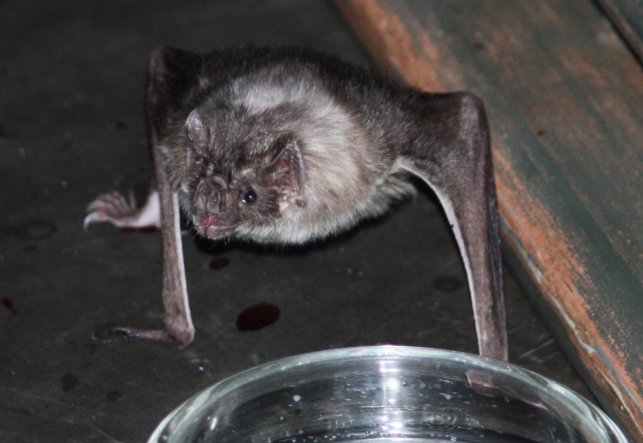
Scientists are baffled after they discovered that the nocturnal vampire bats in Brazil, which were thought to feed only on bird and small mammals like pigs, have started sucking human blood!
According to The Telegraph, researchers found traces of human blood in faecal samples collected from 70 bats. "We were quite surprised...This species isn't adapted to feed on the blood of mammals," said Enrico Bernard, from the Federal University of Pernambuco in Recife, Brazil, as reported.
Bernard's team carried out the research and were able to extract the DNA from 15 faecal samples, out of which three had traces of blood from humans.
Following the study, Bernard concluded that the bloodsucking mammals are either feeding on people sleeping outside their houses in hammocks or are entering homes through holes in roofs or windows. He also explained that this new discovery is quite shocking because till now scientists believed that the bats are able to process fat bird blood and not the thick, protein-rich blood of mammals.
The fact that vampire bats are feeding on humans increased health concerns as the creature often carries rabies and sometimes even hantavirus, which can cause respiratory ailments that are fatal to humans.
Experts blame human encroachment into natural habitats of the bats for their new appetite. More and more human settlements have cropped up in the past decades as a result of which guans and tinamous, which are the normal preys of the bat, have reduced in number.
Scientists also found traces of chickens, which are found in farms in the area, in most of the faeces samples. "They are adapting to their environment and exploiting the new resources," said Bernard, as reported.









